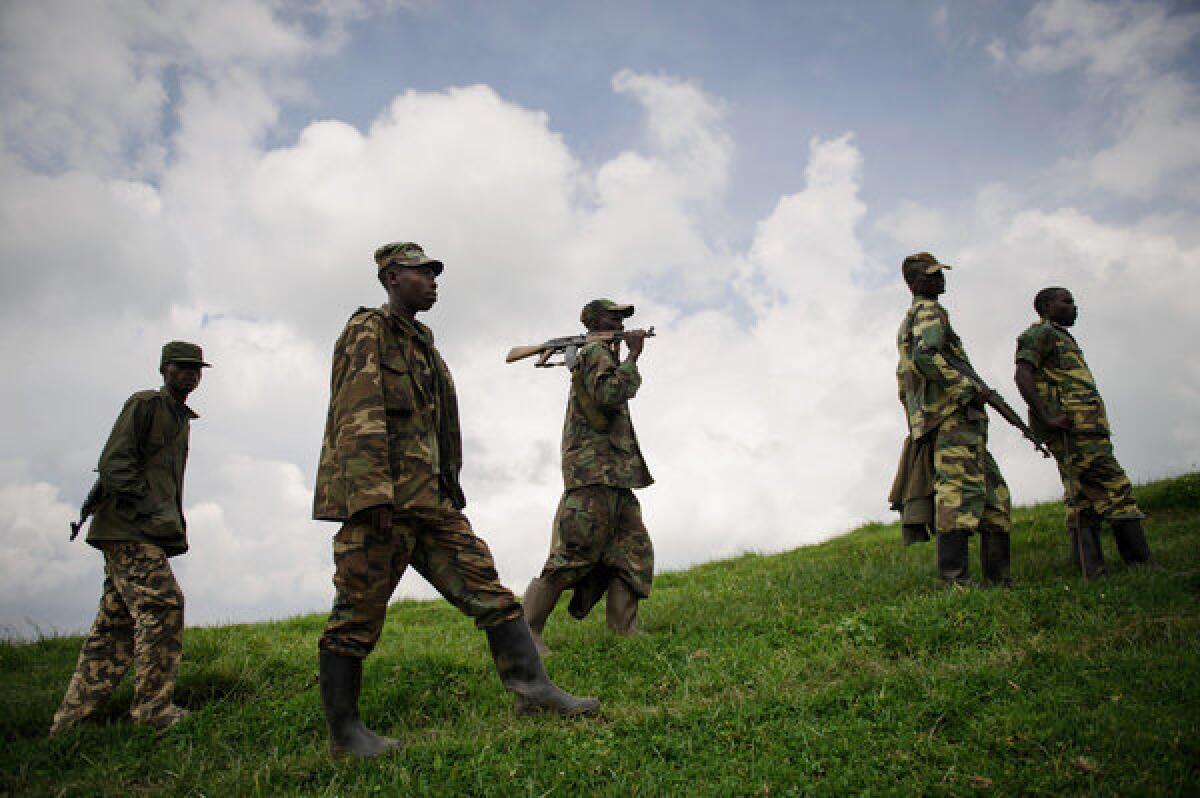A chance for calm in Congo

The Democratic Republic of Congo has been repeatedly ravaged by war, rebellion and attacks on civilians in the last two decades. Though the country is rarely without some skirmish going on somewhere — a result of a complicated history of rivalries among ethnic groups and constant conflicts over land ownership and resources — the government made a strategic move toward peace several years ago. It signed a treaty on March 23, 2009, with a rebel group called the National Congress for the Defense of the People, which had taken a fair amount of control over the mineral-rich eastern part of Congo and was backed by Rwanda, Congo’s much smaller yet more powerful neighbor to the east.
Part of that truce called for incorporating members of the rebel militia into the Congolese military — a shrewd if dicey move on the part of President Joseph Kabila’s government. That worked until early this spring, when the former rebels mutinied against the army — claiming that government officials had not held up their end of the peace accord — and broke away, taking the name M23, a reference to the month and date of the now-failed peace agreement.
Last week, M23 rebels easily took control of Goma, a provincial capital in eastern Congo. Stronger than the Congolese army, and just as brutal if not more so, they threatened to advance into other cities, opening the possibility that the country could be plunged into another chapter of turmoil and tragedy.
Although the international community was remiss in not trying to rein in M23 months earlier, it reacted quickly to this latest crisis. A regional summit of African leaders called on the M23 rebels to stop fighting and withdraw from Goma — and then to negotiate their demands with government officials. The Obama administration has officially condemned M23’s takeover of Goma and called for the return of the city to government control. The U.S. assistant secretary of State for African affairs was dispatched to the region to press for a cease-fire and underscore the United States’ condemnation of any outside support of the rebels.
The M23 rebels include a number of human rights abusers whose records of violence stretch back a decade (long before they were integrated into the army) and include ethnic massacre, rape and recruitment of child soldiers, according to Human Rights Watch. Most notorious is Bosco Ntaganda, a senior rebel leader who was integrated into the Congolese army as a general at the time of the peace accord and is believed to still be involved with M23. (The rebels deny it.) He is wanted for war crimes by the International Criminal Court.
The M23 rebels, not surprisingly, have a list of demands — political prisoners released, the national election commission dissolved — but on Wednesday, they wisely announced that they would retreat from Goma, handing it back to government officials on Friday in advance of opening negotiations.
This is a promising start. Now comes the harder part. This is a region where promises often end up broken. M23 leaders say, for instance, that the government reneged on its promise to give them and keep them in high-ranking military positions. The government — in concert with its regional neighbors and with the support of the United States — must tackle the complex issue of how to run the eastern provinces of Congo and how to include the rebel groups that are rooted there and portray themselves as representatives of the beleaguered inhabitants. They are not going away. Dismiss them, and they will fight again.
That said, if the M23 leaders want to be taken seriously as power brokers and administrators, they could begin by swearing off the brutality of their past and strongly disavowing the vile Ntaganda. That alone would distinguish them as a force that doesn’t merely seek military power, but truly wants to aid the people it says are neglected in eastern Congo.
More to Read
A cure for the common opinion
Get thought-provoking perspectives with our weekly newsletter.
You may occasionally receive promotional content from the Los Angeles Times.










